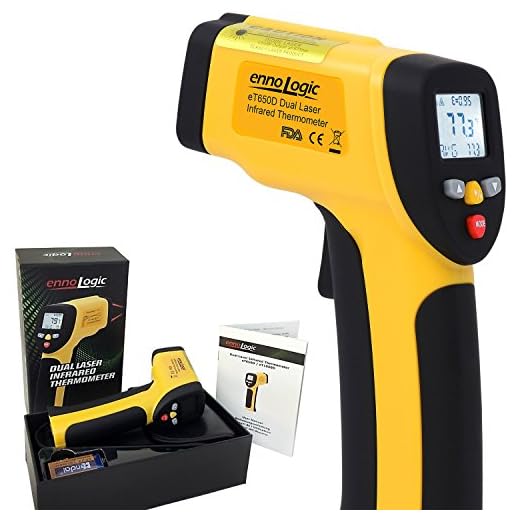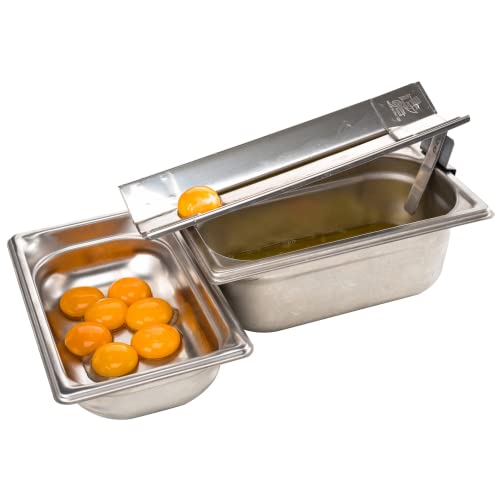



Eggnog is a traditional holiday drink that brings comfort and joy to many households. Whether you choose to make it yourself or purchase it from the store, it’s important to know how long this delicious beverage will last in the refrigerator. Keeping eggnog fresh and safe for consumption is key, especially due to its raw egg content.
Homemade eggnog can usually be stored in the refrigerator for about five to seven days. However, it’s important to remember that the freshness of your eggnog depends on the quality of its ingredients and how it was prepared. The key is to store it properly and monitor its condition.
When storing homemade eggnog, it’s crucial to keep it in a clean, airtight container to prevent the absorption of odors and contamination from other foods. This will help maintain its flavor and prevent any potential spoilage. It’s not recommended to store eggnog in its original carton, as it may not provide a sufficient seal.
If you’re unsure about the freshness of your homemade eggnog, there are a few signs to look out for. Pay attention to any changes in smell, appearance, or texture. If it starts to smell sour, develops lumps, or separates, it’s best to discard it to avoid the risk of foodborne illness.
In conclusion, homemade eggnog can last for about five to seven days in the refrigerator when stored properly. Remember to pay attention to any changes in its smell, appearance, or texture to ensure its freshness and safety. Cheers to enjoying this delightful holiday beverage!
Shelf Life of Homemade Eggnog
Eggnog is a popular holiday drink that many people enjoy during the festive season. It is made with a combination of eggs, milk, cream, sugar, and spices, giving it a rich and creamy flavor. However, because eggnog contains raw eggs, it is important to handle and store it properly to prevent any foodborne illnesses.
The shelf life of homemade eggnog can vary depending on how it is prepared and stored. If the eggnog is made with pasteurized eggs or if the eggs are cooked, it can last for up to five days in the refrigerator. However, if the eggnog is made with raw eggs, it is recommended to consume it within two to three days to ensure its freshness and safety.
To extend the shelf life of homemade eggnog, it is important to store it in the refrigerator at a temperature below 40°F (4°C). It is also a good idea to transfer the eggnog into a tightly sealed container to prevent any odors or bacteria from contaminating it.
It is important to note that homemade eggnog may separate after being stored for a while. This is normal and can be easily fixed by giving it a good stir or shaking it before serving. However, if the eggnog has an off smell or taste, or if it appears to be curdled or chunky, it is best to throw it away to avoid any potential health risks.
In conclusion, the shelf life of homemade eggnog can vary depending on its preparation and storage. It is important to handle and store eggnog properly to ensure its freshness and safety. By following proper storage techniques and consuming it within the recommended time frame, you can enjoy homemade eggnog throughout the holiday season.
Factors Affecting Eggnog Shelf Life
Several factors can affect the shelf life of homemade eggnog, including:
1. Ingredients
The quality and freshness of the ingredients used in the eggnog recipe can greatly impact its shelf life. Using fresh, pasteurized eggs, high-quality dairy products, and pure vanilla extract can help extend the eggnog’s freshness.
2. Storage Temperature
The temperature at which eggnog is stored can significantly affect its shelf life. Eggnog should be immediately refrigerated at a temperature below 40°F (4°C) to slow down the growth of bacteria. Keep in mind that the refrigerator temperature should be consistent, and the eggnog should be stored away from other strong-smelling foods.
3. Storage Container
The choice of container for storing eggnog can also impact its shelf life. It is recommended to use a clean, airtight container to prevent contamination and keep the eggnog fresh. Glass or plastic containers with tight lids are ideal for storing eggnog.
4. Handling and Contamination
Proper handling of eggnog is crucial in prolonging its shelf life. Avoid leaving eggnog at room temperature for an extended period, as it can quickly spoil. Additionally, contaminating the eggnog with dirty utensils or not practicing good hygiene habits during the preparation can also reduce its freshness.
5. Eggnog Additives
If any additives, such as alcohol or spices, are mixed into the eggnog, it can affect its shelf life. Alcohol can act as a preservative and extend the freshness, while spices may introduce additional bacteria. It is important to consider these factors when determining the eggnog’s shelf life.
By considering these factors and following proper storage and handling practices, homemade eggnog can have a maximum shelf life of 3-4 days when refrigerated.
Storage Tips for Eggnog
Proper storage of homemade eggnog is essential to maintain its freshness and prevent the growth of bacteria. Here are some tips to help you store your eggnog:
| Storage Method | Duration |
|---|---|
| Refrigerator | Up to 3-4 days |
| Freezer | Up to 3 months |
When storing eggnog in the refrigerator, make sure to keep it in a tightly sealed container to prevent any odors from seeping in or the liquid from spilling out. It is also recommended to store eggnog on a refrigerator shelf rather than the door, as the temperature remains more consistent.
If you wish to store eggnog for a longer period, freezing it is a good option. Transfer the eggnog into a freezer-safe container, leaving some room for expansion. Before freezing, make sure your eggnog is properly cooled down. When ready to consume, thaw it in the refrigerator overnight and whisk it before serving to restore its creamy texture.
It is important to note that the texture of eggnog may change slightly after storage, especially when frozen. However, the flavor should remain intact, allowing you to enjoy the festive drink throughout the holiday season.
Signs of Spoiled Eggnog
It is important to be able to recognize when eggnog has gone bad in order to avoid consuming spoiled and potentially harmful beverages. Here are some signs that your homemade eggnog may have spoiled:
- Foul odor: One of the first indicators of spoiled eggnog is a foul or unpleasant smell. If your eggnog has a rancid or off-putting odor, it is best to discard it.
- Change in texture: Spoiled eggnog may have a curdled or lumpy texture. If your eggnog appears clumpy or grainy, it is a clear sign that it has spoiled.
- Discoloration: If your eggnog has changed in color and appears darker or discolored, it is likely that it has gone bad. Eggnog should have a creamy, pale yellow color.
- Mold or visible growth: If you notice any mold or visible growth on the surface of your eggnog, it is absolutely not safe to consume. Mold can produce toxins that can cause illness when ingested.
- Unpleasant taste: Spoiled eggnog may have a sour or bitter taste. If your eggnog tastes off or unpleasant, it is best to err on the side of caution and discard it.
Remember, consuming spoiled eggnog can lead to food poisoning and other health issues. It is always better to be safe than sorry when it comes to perishable beverages like eggnog.
Prevention of Eggnog Spoilage
Eggnog is a delicious holiday treat, but it has a relatively short shelf life due to its perishable ingredients. To prevent spoilage and maintain the quality of your homemade eggnog, follow these guidelines:
1. Pasteurize the eggs: Raw eggs can contain harmful bacteria, so it’s crucial to pasteurize them before using them in your eggnog recipe. Heat the eggs in a saucepan over low heat, stirring constantly until they reach a temperature of 160°F (71°C).
2. Use fresh ingredients: To ensure the longevity of your eggnog, start with fresh eggs, milk, and cream. Check the expiration dates on these ingredients, and avoid using any that have expired.
3. Chill the eggnog promptly: After preparing the eggnog, transfer it to a container with a tight-fitting lid and place it in the refrigerator immediately. The colder temperature slows down bacterial growth, prolonging the shelf life of the eggnog.
4. Store in airtight containers: To prevent the absorption of odors and flavors from other foods in the refrigerator, store your eggnog in airtight containers. This will also help maintain its creamy consistency.
5. Avoid cross-contamination: When serving eggnog, use clean utensils and avoid double-dipping. This prevents the introduction of bacteria from mouth contact, which can hasten spoilage.
6. Consume within a week: For the best taste and quality, consume your homemade eggnog within 5 to 7 days of preparation. After this point, the eggnog may begin to separate or develop an off taste.
By following these tips, you can enjoy your homemade eggnog for longer, ensuring a safe and delicious holiday season.
Alternatives to Fresh Eggnog
If you have run out of fresh eggnog or simply prefer to try something different, there are several alternatives you can consider:
1. Store-bought Eggnog: If you don’t have the time or ingredients to make fresh eggnog, store-bought options are widely available. Look for brands that use high-quality ingredients and have a good reputation for taste.
2. Dairy-Free Eggnog: For those who are lactose-intolerant or prefer a plant-based alternative, there are several dairy-free eggnog options available. These are often made from almond milk, coconut milk, or soy milk, and can be found in most grocery stores.
3. Spiked Eggnog: For a boozy twist on traditional eggnog, you can add a shot of your favorite spirit such as bourbon, rum, or brandy. This can add an extra depth of flavor and make your eggnog extra festive.
4. Eggnog-flavored Desserts: If you’re feeling creative, you can incorporate the flavors of eggnog into other desserts. Consider making eggnog-flavored cookies, cakes, or ice cream to enjoy a different take on this classic holiday flavor.
5. Eggnog Latte: Another alternative is to make an eggnog latte. Simply combine a shot of espresso with steamed eggnog and a sprinkle of nutmeg on top. This is a delicious and cozy treat for coffee lovers.
Remember, the shelf life and storage guidelines may differ depending on the alternative eggnog you choose, so always check the label or follow the manufacturer’s instructions.
FAQ
How long can I keep homemade eggnog in the refrigerator?
Homemade eggnog can be kept in the refrigerator for up to 4-5 days.
Is it safe to drink homemade eggnog that has been in the refrigerator for more than a week?
No, it is not safe to consume homemade eggnog that has been in the refrigerator for more than a week. It is recommended to discard it after 4-5 days.









